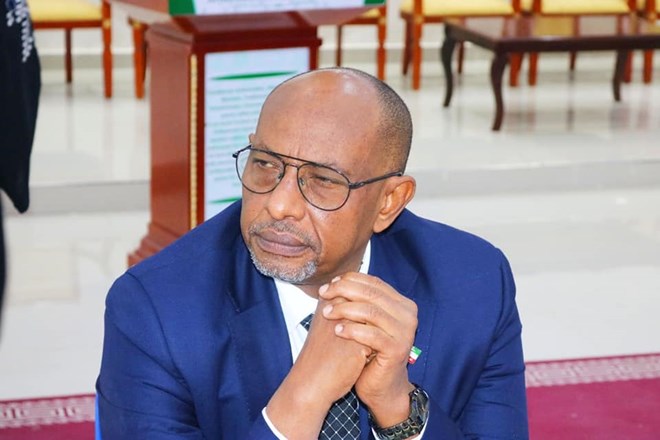
Thursday August 1, 2024

Hargeisa (HOL) - Hargeisa (HOL) — Somaliland has established a ministerial committee to intensify its efforts for international recognition, the Ministry of Foreign Affairs announced. This move marks a significant step in Somaliland's 33-year quest for recognition.
The announcement said the new committee will focus on structuring and implementing strategies to gain recognition. This development follows a memorandum of understanding (MoU) signed between Somaliland and Ethiopia, which has sent shockwaves through the Horn of Africa. Somaliland says Ethiopia will become the first country to grant it recognition in exchange for access to the sea. This deal has sparked outrage in Somalia, which views it as an act of aggression. In April, Somalia expelled the Ethiopian ambassador and threatened to expel over 8,000 Ethiopian soldiers stationed there to fight al-Shabab.
Somaliland's Minister of Foreign Affairs, Dr. Essa Kayd Mohamoud, was recently in Addis Ababa, Ethiopia, working on finalizing the maritime agreement. He previously stated that once the deal is concluded, the ministerial committee would focus on converting the understanding into an official agreement.
Somaliland, which declared independence from Somalia in 1991, has its own government, flag, army, currency, and courts. This push for recognition is driven by historical grievances, including the bombing of Hargeisa during Somalia's dictatorship era, which killed tens of thousands and left deep scars.
Despite the bold step with Ethiopia, the international community, including the African Union, has been hesitant to support Somaliland's independence due to concerns about setting a precedent for other separatist movements. Ethiopia, while negotiating with Somaliland, has assured Western diplomats that it respects Somalia's territorial integrity as per the African Union Charter and international law. Ethiopia's Prime Minister Abiy Ahmed's government has clarified that it has not promised to grant diplomatic recognition to Somaliland, despite the MoU.
Somaliland's pursuit of recognition is further impacted by regional dynamics. Egypt, already in conflict with Ethiopia over a dam on the Nile, has pledged to defend Somalia's sovereignty. U.S. officials are concerned about the potential disruption in the fight against al-Shabab.
Domestically, reactions in Somaliland are mixed. While there is excitement about potential recognition, there are also concerns about transparency and skepticism about Ethiopia's commitment. The resignation of Somaliland's Defense Minister, who called Ethiopia an enemy, and the arrests of journalists and a pop star critical of the agreement highlight internal tensions.